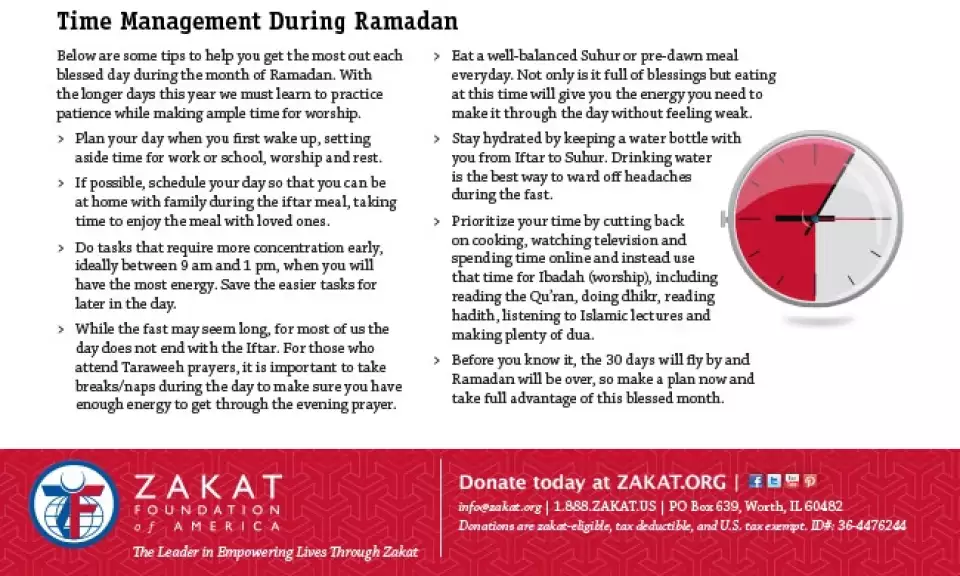To make the most of each blessed day during this holy month, our daily routines must expand to accommodate not only our usual work or school responsibilities and exercise but additional time for prayer, rest and time with family and loved ones.
Before sleep each night, plan out the next day including a healthy breakfast for Suhur, additional time for prayer and when you will take a rest. Making preparations such as setting out clothes for the morning and making lunches or snacks for children to take to school or camp will also open up time for longer worship in the morning.
Once the day has started, make sure to organize your day to work with your energy level. The best time to do tasks that require greater concentration and focus is before 1:00 in the afternoon, while less involved tasks are best left for later in the day.
For many, the day does not end with the Iftar. For those who attend Taraweeh prayer, it is important to take breaks or naps during the day to make sure you have enough energy for the evening prayer.
In many ways effective time management is a question of rearranging priorities to reflect the reality of the holy month. Instead of grabbing a quick dinner as we might at other times, we make a point of enjoying Iftar at home with family or at the mosque with our community. Instead of killing time playing video games, watching TV or spending free time online, we use that time for Ibadah (worship), including reading the Qu’ran, doing dhikr, reading hadith, listening to Islamic lectures and making plenty of dua.
Before you know it the holy month will be over. Inshallah you will have drained every drop of sweetness contained within each of its precious days.







